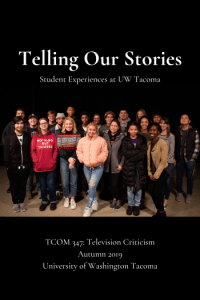
Happy Open Education Week, friends!
Open Education Week (March 2 – 6, 2020) is an annual, global event focused on raising awareness about open education. The open education movement works toward a world where all people can access, share, and contribute to human knowledge regardless of their income, geographic location, or other potential barriers. According to the Cape Town Open Education Declaration,
This emerging open education movement combines the established tradition of sharing good ideas with fellow educators and the collaborative, interactive culture of the Internet. It is built on the belief that everyone should have the freedom to use, customize, improve and redistribute educational resources without constraint. Educators, learners and others who share this belief are gathering together as part of a worldwide effort to make education both more accessible and more effective.
People contribute to open education in many different ways, including by using course materials that are free to students and that can be easily shared and adapted by educators (Open Educational Resources); encouraging learners to participate in the process of creating and sharing knowledge (open pedagogy); and championing policies and practices that reduce barriers to education — all of which you can do right here at UW Tacoma!
Check out my top five ways to celebrate Open Education Week right here on campus below.
1. Visit the UW Tacoma Open Educational Resources guide.
This online guide can help you learn about, find, use, and even create Open Educational Resources, or OER. OER are materials designed for teaching and learning that are free to students and that also grant permission for people to use, share, and even revise the content.
2. Admire open work by UW students!

Open education goes beyond the materials educators and students use in the classroom. It can also shape the entire process of teaching and learning in a way that encourages student agency, actively creating and sharing knowledge, and community participation (Cangialosi, 2018). Check out some examples of open pedagogy assignments on UW campuses (including right here at UW Tacoma!) below.
- Telling Our Stories: Student Experiences at UW Tacoma
- First Wave Feminisms (UW Tacoma)
- Badass Wmxn in the Pacific Northwest (UW Bothell)
3. Attend open education events.
The UW Libraries are hosting a number of upcoming open education events. You can also participate in other Open Education Week events hosted by colleagues around the world.
- Authoring Open Textbooks and OER: UW Perspectives, March 4 3:00-4:30pm, Seattle campus: Learn about the process of publishing flexible teaching resources that save students money in this panel session featuring Justin Marlowe (Evans School), Eduardo Viana da Silva (Spanish & Portuguese Studies) and Ian Schnee (Philosophy), followed by Q&A and Refreshments. Co-sponsored by the UW Libraries, UW Center for Teaching & Learning, and UW Learning Technologies. Location: Suzzallo-Allen Library.
- OER Community Meet-Up, April 23, 2:00-3:30pm, online: Join your colleagues across the UW system to compare notes on OER and using open book publishing platforms! Share your experiences, come ask questions, or just listen in. We’re hoping to build an open community around OER and Pressbooks, and this is our kick-off event.
4. Read about Open Educational Resource efforts on campus.
The UW Tacoma Library supports efforts to reduce textbook costs to our students and the many other benefits that come with using Open Educational Resources — and we’ve been working to spread the word! You can learn more about these efforts and the wonderful campus faculty and administrators we’re working with right here on the blog.
- UW Tacoma Perspectives on Open Educational Resources
- Panel Discussion: Open Educational Resources at UW Tacoma
- All OER related blog posts
5. Set up an appointment to explore more options.
Want to talk about finding open resources for a UW Tacoma course, advocating for affordable course materials, or getting started with open pedagogy? I’m happy to answer questions and help with projects, including getting you started with finding new course materials or converting assignments. Let’s meet!
References
- Cangialosi, K. (2018, September 5). But You Can’t Do That In a STEM Course! Karencang.Net. https://karencang.net/teaching/but-you-cant-do-that-in-a-stem-course/
- The Cape Town Open Education Declaration. (2007, September). https://www.capetowndeclaration.org/